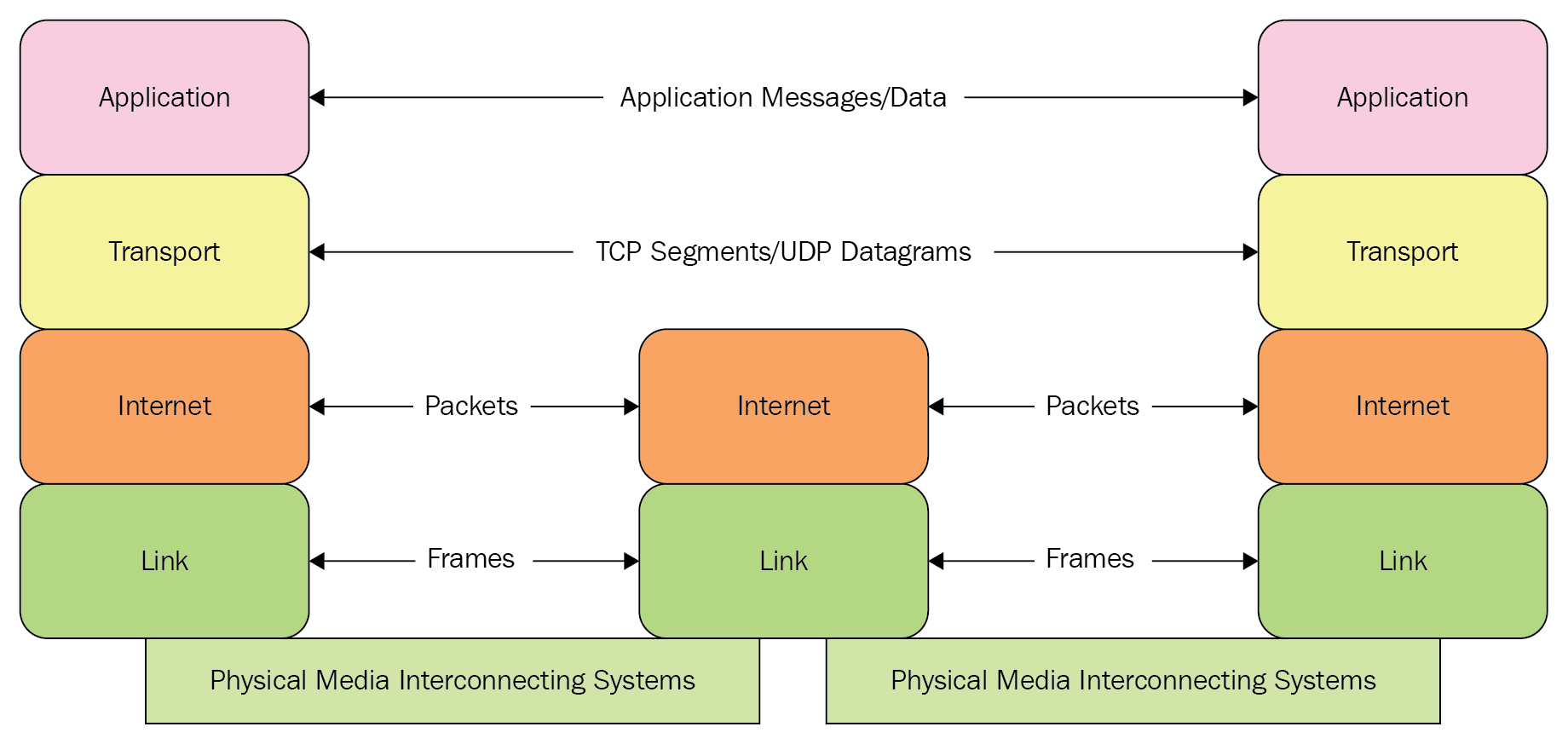The TCP/IP Protocol Architecture, continued

|
The host/host layer contains protocols able to deliver data
between processes on the different hosts.
Depending on the quality of service and the length of connections required
(if any) at this layer,
four host-host layer protocols are in frequent use -
- A reliable connection-oriented data protocol providing reliable,
sequenced delivery (the Transmission Control Protocol, TCP, akin to the
ISO Class 4 transport protocol)
[RFC-793].
- A low overhead, minimum functionality datagram protocol
(the User Datagram Protocol, UDP)
[RFC-768].
- Reliable datagram protocols, providing low overhead communication
for 'bursty' delivery between 'random' endpoints -
good for speech and low-definition video streams
[RFC-908].
- A real-time streaming protocol, characterized by the need for handling
a steady stream with minimum delay variance
[RFC-2326].
The process/application layer protocols define resource sharing
(e.g. host-to-host) and remote access (terminal-to-host).
Well understood process/application layer protocols
include the File Transfer Protocol (FTP),
[RFC-959],
HyperText Transport Protocol (HTTP),
Simple Mail Transfer Protocol (SMTP) and
the TELNET Protocol (for terminal emulation connections).
|
CITS3002 Computer Networks, Lecture 7, The TCP/IP protocol suite, p8, 17th April 2024.
|


 CITS3002
CITS3002 help3002
help3002 CITS3002 schedule
CITS3002 schedule